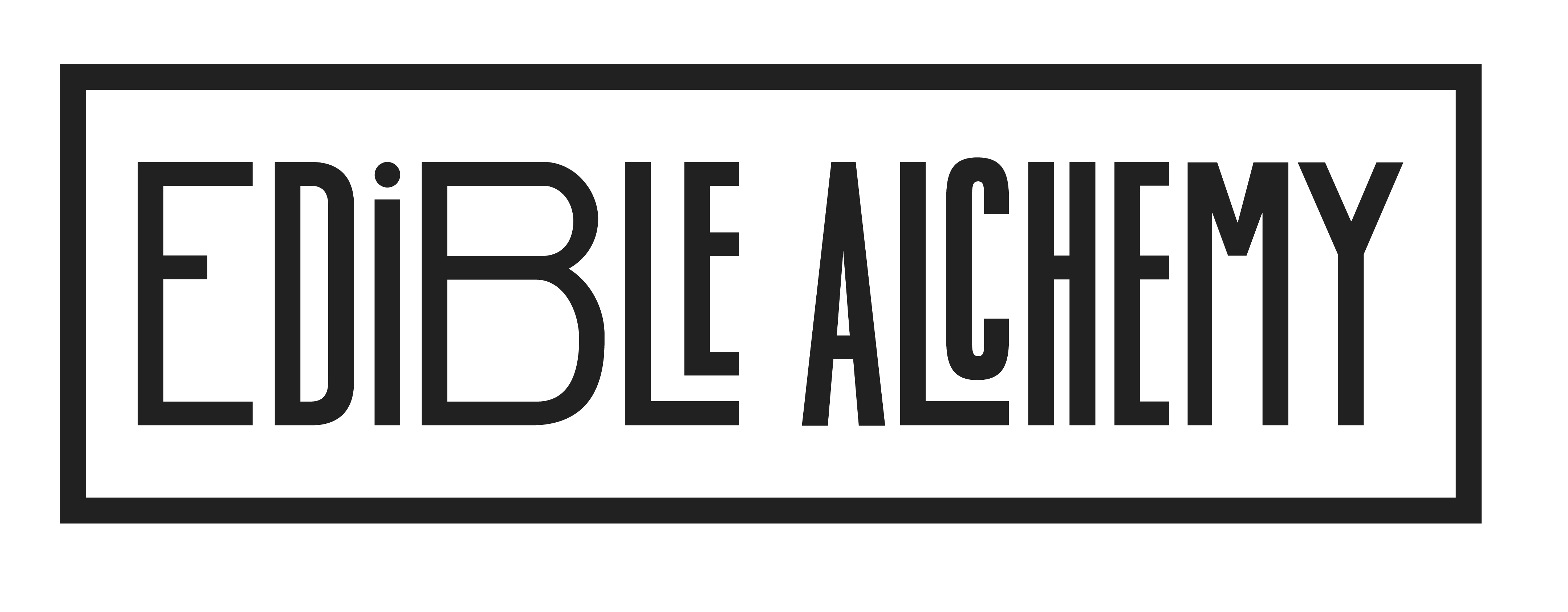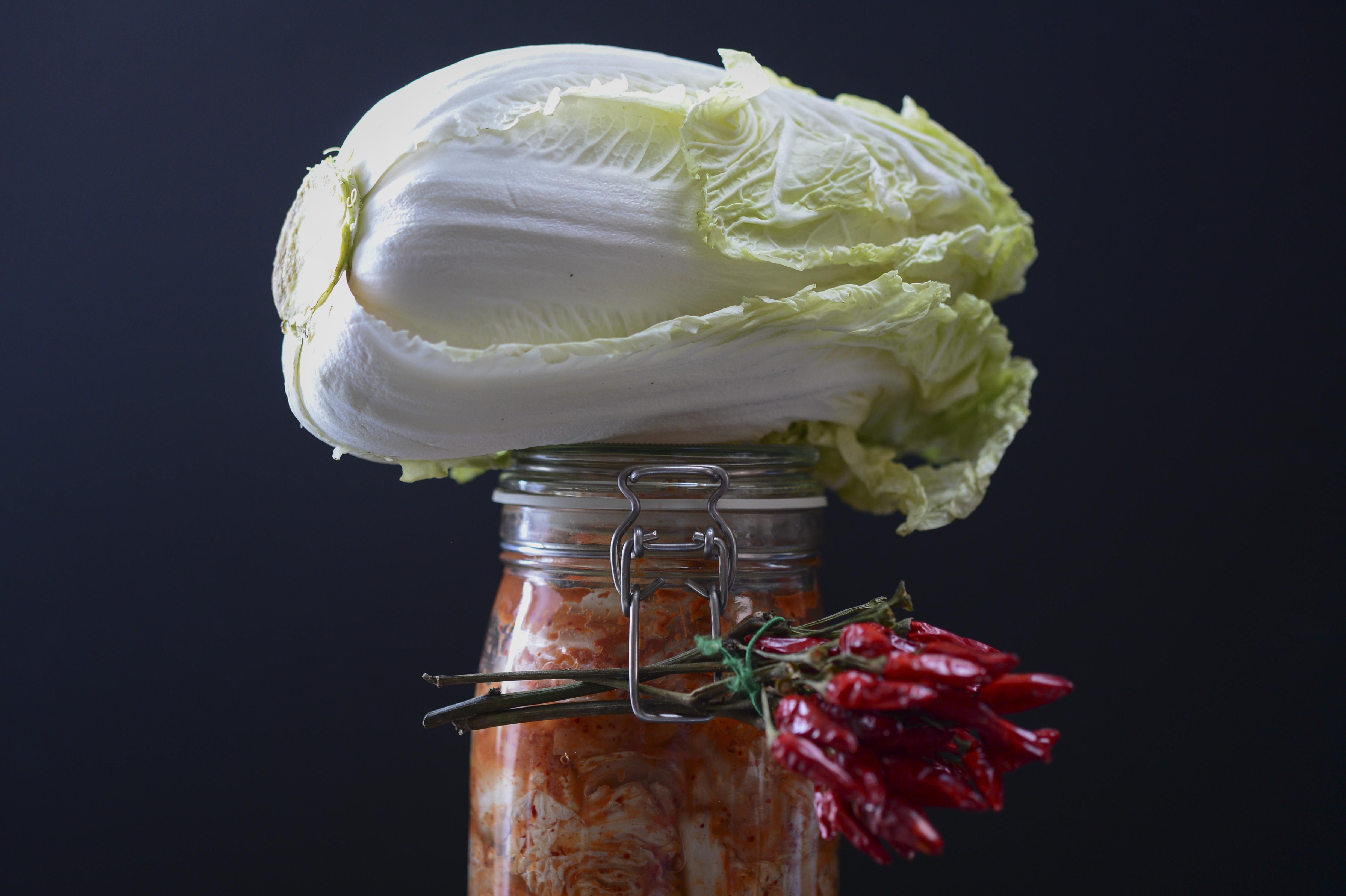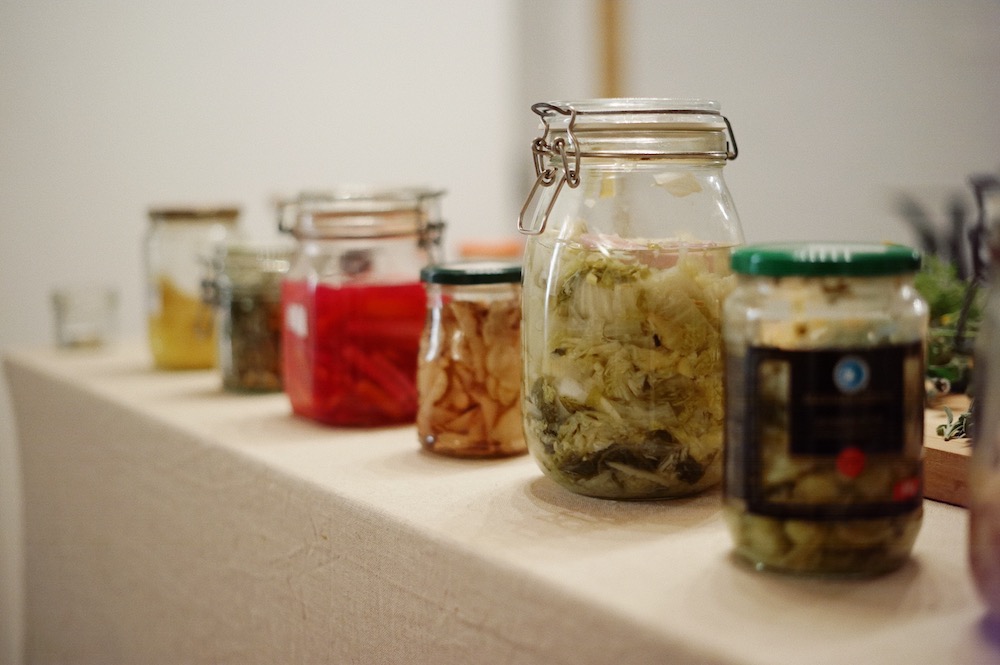
Kimchi and kraut alias napa cabbage and white cabbage. Both are harvested in autumn, a time of abundance and season of giving thanks; both are lacto-fermented in brine, a simple saline solution that allows us to indulge in nutrients and flavours all-year-round.
These down-to-earth fermented foods artfully embody some of the ideas that we touch on in our Hedonistic Sustainability series. Ergo, kimchi and kraut act as poster children for Edible Alchemy’s holisms—health and taste, i.e. hedonism, and sustainability.
To better understand how these pillars are rooted in Edible Alchemy’s philosophy, we must first examine the individual roles of each, both in broader areas of society and in our day-to-day fermentation practices.
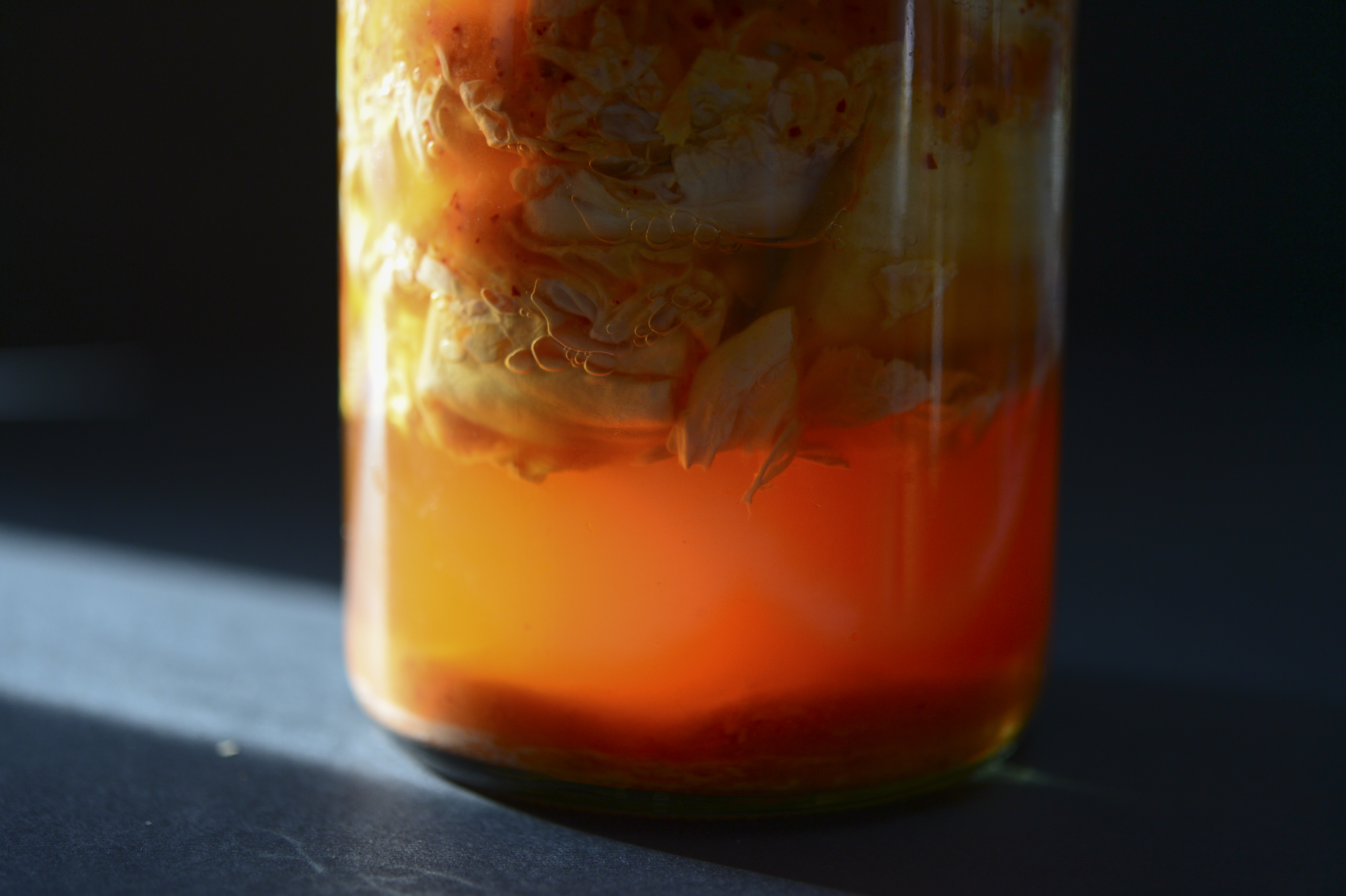
HEDONISM
At its core, hedonism is a practical philosophy or ‘lifestyle guide’ which focuses on the pursuit of pleasure, freedom from fear and the absence of pain. A common misconception within this approach to life arises when we equate the ‘pursuit of pleasure’ with ‘the pursuit of short-term pleasure’.
Epicurus – considered one of the fathers of the hedonistic lifestyle – already contested this misconception sometime around 300 BC. The example he used is commonsensical and just as relevant today as they were in Ancient Greece. If you indulge in a lot of wine you might gain short-term pleasure, but you will fail to avoid pain due to the hangover you experience the next day. Besides, the act of being extremely intoxicated in itself is not very pleasant. More often than not, a state of inebriation represents an unfit strategy of freeing oneself from fear. But that is a topic on its own, which we’ll save for a rainy day.
Philosophers clearly distinguish hedonism (immediate, indulgent pleasure in which suffering is avoided) from epicureanism (a form of hedonism in which simple pleasures are indulged in only in moderation to ensure that they can be maintained). To differentiate the two, from here on in, we refer to epicureanism as hedonistic sustainability.
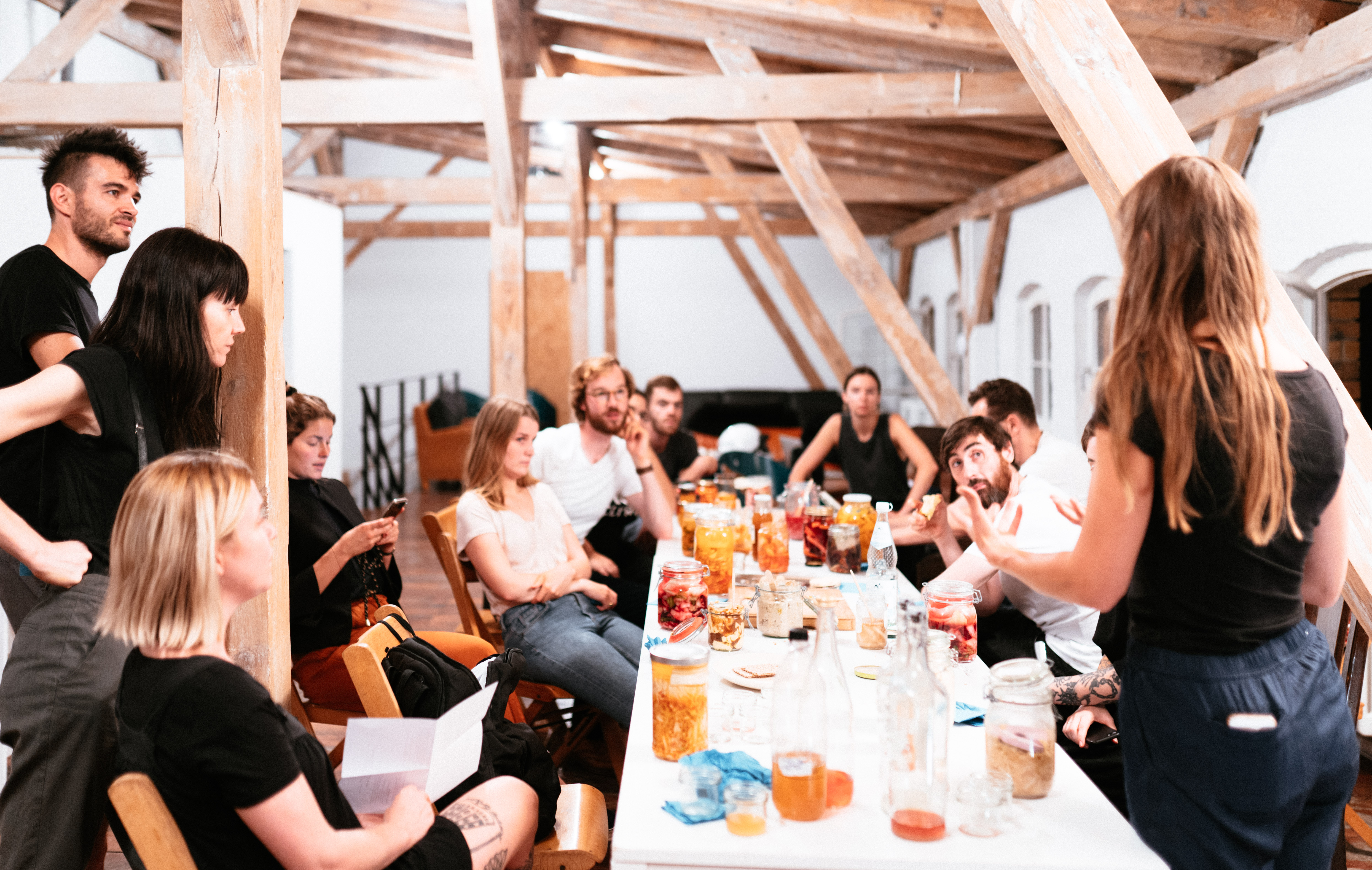

Our consumer-centric world is living proof that hedonistic tendencies, in their indulgent form, have gained the upper hand in modern society. Somewhere along the way, epicurean values were left behind like a tumbleweed in a trail of dust.
Restaurants of all price ranges put meat, fish, and/or exotic foods at the center of their menus. Vegetarian or vegan dishes seem like incomplete meals where the meat component is either missing or has to be replaced by a surrogate. Regional and seasonal ingredients like all cabbages, legumes, pumpkins, grains, stone fruit, (the list could go on!) come over as plainly boring.
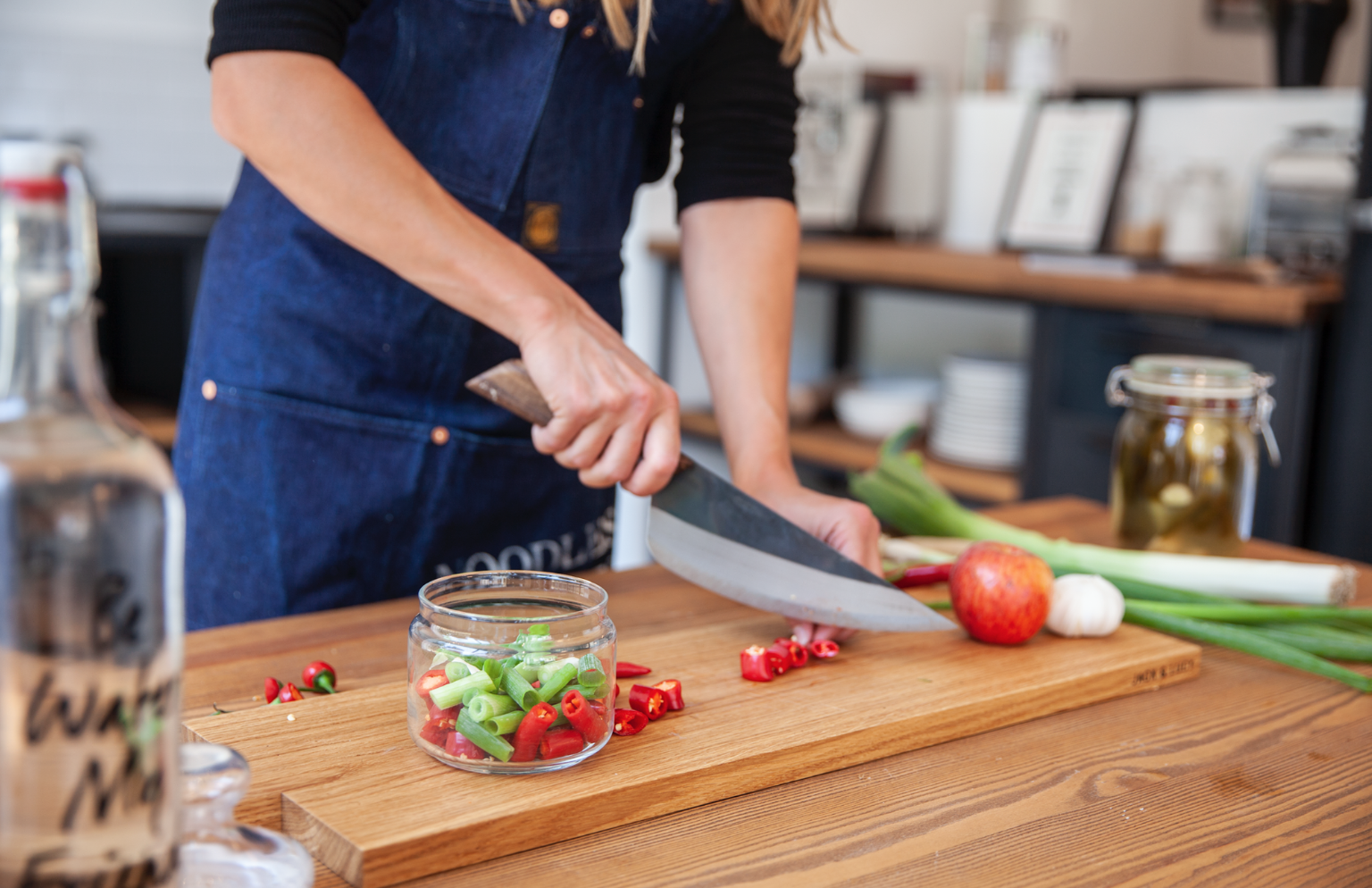
In a similar manner, members of prosperous societies eat not only to nourish their bodies, but also feed their souls. And this is where the problems begin to unfold. Affluence has created the false illusion that the availability of natural resources is endless. Societies have developed dangerous blindspots for the antagonistic effects of abundance.
What do we mean by that? Well, what is presented to us on most supermarket shelves is by no means the full picture. We don’t bear witness to the depleted soils and shrivelling water sources brought forth by conventional agriculture. We don’t carefully track the greenhouse gases that are emitted into our atmosphere when foods traverse entire continents and seas. And we seldom take responsibility for the tremendous amount of food that goes to waste, just so that we can shop from fully stocked shelves 365 days in the year, or sink our teeth into perfectly-shaped apples.
Eat to live, or live to eat?
We too are by no means perfect, and at Edible Alchemy, we consider ourselves aspiring sustainable hedonists. As such, we tackle the challenge of eating to live whilst maximising our pursuit of pleasures in ways that minimise impact on our bodies and our planet. The practice of fermentation allows us to embrace our inner epicureans by balancing consumption with health and taste; we encourage ourselves to eat in moderation while indulging in nutrients and flavours.
Our sources of pleasure become inherently sustainable as a result.
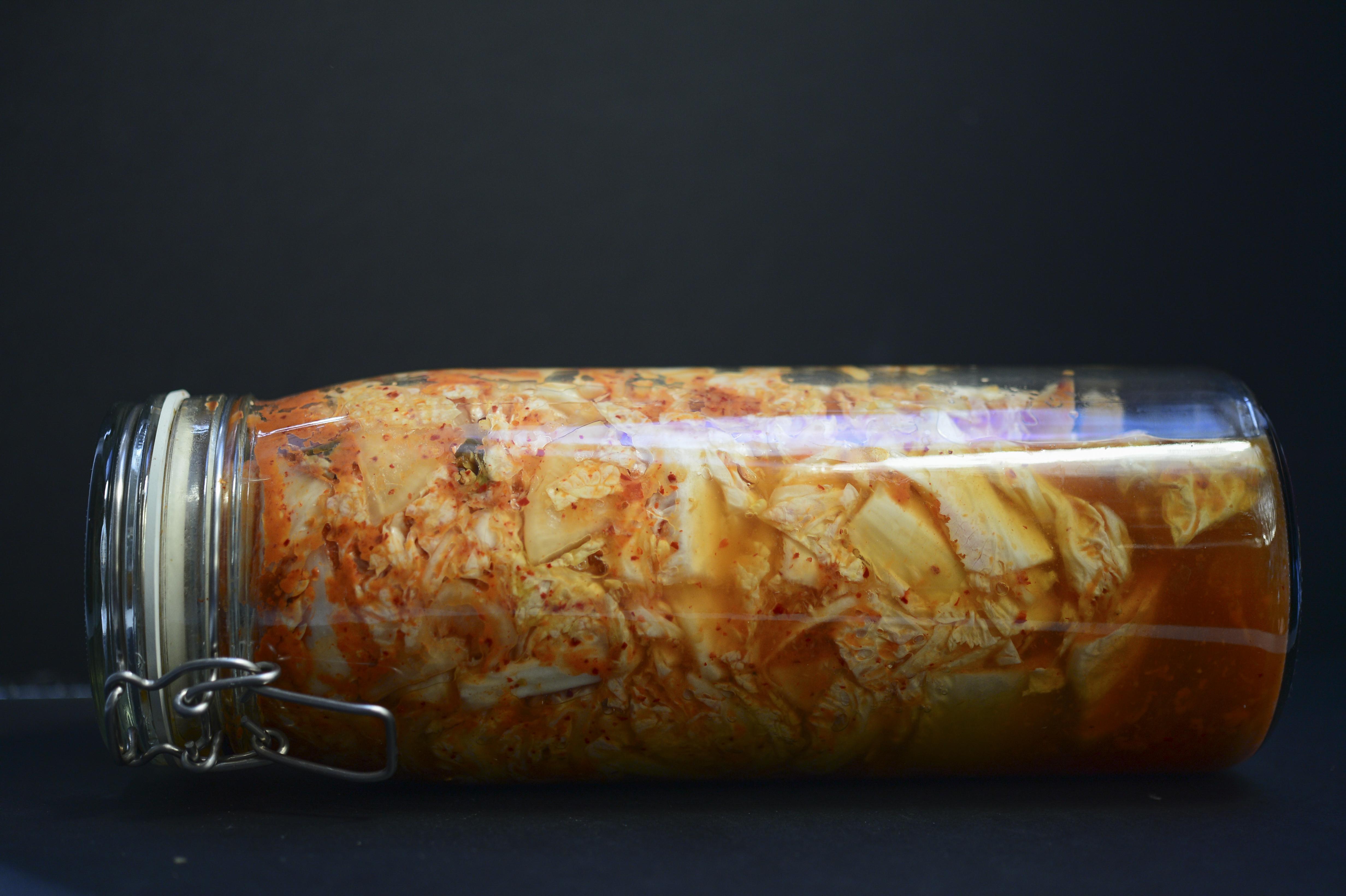
SUSTAINABILITY
In the grand scheme of things, sustainability can be clustered into five areas of action: personal, ecological, aesthetic, cultural, economic, social. When we talk about sustainability in the context of fermentation, we touch on all of these pillars in a number of different ways.
In the face of abundance, fermentation prevents waste. Thanks to a little help from a trusty molecular friend, called lactic acid, vegetables only sour the right way in brine. As a result, foods we cultivate and consume have less of an impact on the environment and our wallets. Some might even go as far as to equate fermentation to a glamorous form of dumpster diving (alias glumpster diving); we salvage foods before they go bad and are rewarded with complex, new flavour explosions.
Furthermore, fermentation allows us to align consumption more with transitory concepts of seasonality. By prolonging regional foods’ lifespans via low-impact preservation methods, our diets become richer. The need to import ingredients from distant lands is reduced significantly. Rather than relying on refrigerators and freezers to maintain our favourite flavours for months on end, fermentation allows us to store them at low room temperature. The need for electricity evaporates into thin air.
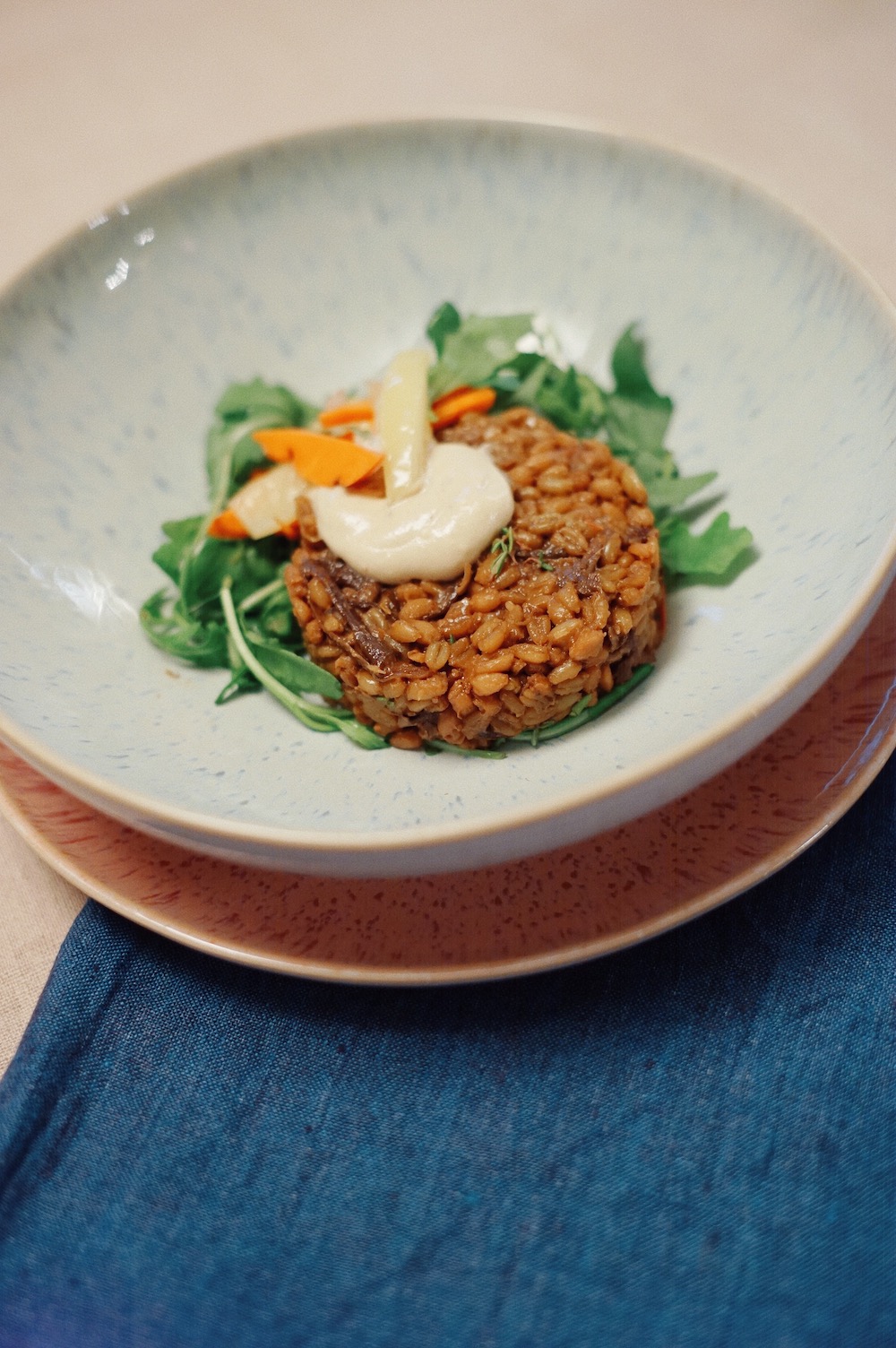

This brings us to the matter of climate change mitigation. In the context of cutting CO2 emissions, scientists widely encourage the reduction of meat in our diets. Some fermented foods, such as miso and hot sauce, provide a possible solution to the age-old dilemma that many consumers are unwilling to abstain from eating meat regularly for lack of equally palatable alternatives. But thanks to ferments’ inherent umami nature, we can reduce meat consumption without losing meat’s ‘tasty taste’ on our plates.
In that spirit, we work hard to avoid perceiving vegetarianism or flexitarianism in terms of reduction or abstinence. Instead, at Edible Alchemy, we see fermentation as an invitation to expand our palates and indulge in new flavours. As a result, we often discover that we are having a vegetarian or vegan meal, albeit unintentionally.
Last, but certainly not least, fermentation promotes diversity by giving way to a kaleidoscope of flavours, tastes and colours. Endless opportunities to create new combinations ensue. In a nutshell, fermentation allows us to explore what is at our doorstep in entirely new ways. When we turn to cultures’ ancient fermentation practices for inspiration, we are empowered to diversify our palates and broaden our horizons.
Start your own journey in our Online Academy or join one of our upcoming workshops in Berlin!
Images 1, 7 & 8 © Katleen Roggeman
